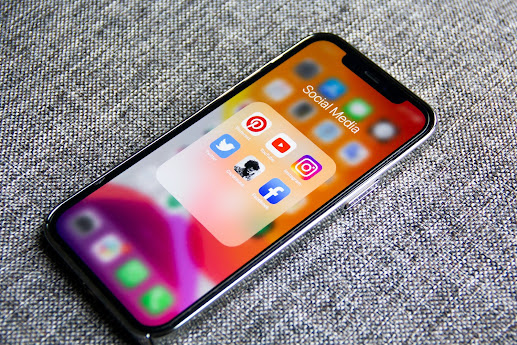Search This Blog
Thursday, August 20, 2015
3 signs you're doing social media wrong
This is not an exhaustive list. It was inspired by a quick look at a company profile on Google +. I used to follow that company but just stopped because it clearly is not paying attention to its own posts. It was guilty of all 3 of these:
1. You only post self-promotion and nothing else.
2. You don't respond to any of the comments on your posts, including those with direct questions.
3. You have one guy post "Thanks a lot, [profile name]" on each post, which just makes it look like you hired someone not very bright to comment.
In other words, #DoingItWrong
If you have any other signs of doing social media wrong, please write them in the comments!
Tuesday, August 18, 2015
What would Spock do?
 |
| from https://lurentis.com/blog/driverless-cars-pandoras-box-now-wheels/ |
Is there an ethical algoirthm for driverless cars
These are the types of questions that bring ethics specialists and engineers together in addressing the challenge of directing driverless cars.
Does Spock offer a solution to the problem? He may, if people would accept Vulcan logic. Learn more in
Driverless Cars Present Ethical Challenges
Tuesday, July 28, 2015
Retailers get into predictive analytics
Here on All Analytics, we’re generally sold on the value of predictive analytics. The question is: Are retailers, particularly those managed by people who believe in their gut intuition, sold on it? Even they are starting to appreciate what analytics can do for their business.
According to Dean Abbott, co-founder and chief data scientist at SmarterHQ and author ofApplied Predictive Analytics: Principles and Techniques for the Professional Data Analyst, it is ushering a cultural change for retail.
I recently chatted with Abbott about what the application of predictive analytics means to the retail space. Read more in
Predictive Analytics: Data and Retail Expertise
Friday, July 24, 2015
Good data should not come at the cost of Goodwill
 |
| https://upload.wikimedia.org/wikipedia/commons/a/a9/2008-08-04_CVS_Pharmacy_in_Durham.jpg |
CVS recently ran an experiment that's generating a lot of buzz online. Unfortunately, it's not the kind of customer reaction retailer likes to get.
The drugstore giant chose the week of July 12 to deviate from its usual offer of special coupons or promotions in printed circulars. They were betting that what they gained in data insight for the week would be worth the price of alienating some customers.
Thursday, July 23, 2015
Wooden dolls and today's supply cahin
It sounds like an oxymoron: smart wooden dolls. However, that's exactly what manufacturer Avakai has created. Though it looks like a simple wooden doll in the shape Russian nesting dolls, it is Bluetooth enabled to offer interactive response. With their stress on connectivity, transparency, sustainability, and adaptability, this company reflects the values we're seeing in today's electronic supply chain.
Read more in
 |
| picture from http://41.media.tumblr.com/d49c1c89d70c241ecbd9f1a1d6df6b58/tumblr_inline_noacz2YMVN1t8bz9y_1280.jpgA |
What Wooden Dolls Can Teach Us About Today’s Supply Chain
Wednesday, July 22, 2015
5G: potential and challenges for the brave new world of IoT
The progression to 5G from 4G is different from the previous advance from 3G because that shift was all about speed and now it's all about connection on an unprecedented scale.
More specifically, this time around, the new factor is IoT, and as Aicha Evans, corporate vice president and general manager of the Communications and Devices Group, Intel Corp.(Nasdaq: INTC), observes, this "new paradigm will require major changes to traditional cellular network topology."
Indeed, the 5G realm will encompass a lot more devices, technologies and participants than anything we've seen before. Consequently, collaboration within the industry is essential to keep the various components in communication with each other and on the same page about standards and plans.
That's one of the key differences between the upcoming change and previous progressions, and it holds a great deal of promise for, as well as a number of challenges, for the industry.
To get some insider insight into the journey that lies ahead for arriving at 5G over the next five years, The New IP checked in with Evans via email
Read her insights in 5G & the IoT Factor
Thursday, July 16, 2015
2020 Vision on 5G
 By 2020, there will be 50 billion
devices connected to the internet that will generate will over $8 trillion in
Value at Stake, according to a recent report by Cisco and DHL That’s quite a leap in connections.
By 2020, there will be 50 billion
devices connected to the internet that will generate will over $8 trillion in
Value at Stake, according to a recent report by Cisco and DHL That’s quite a leap in connections.
What has to happen before the
connections can grow from 15 billion to 50 billion? Intel predicts that growth
of 5G will happen, as the next step in the evolution of connectivity. But the
question remains about exactly what forces will influence the manifestation of
5G and how long it will take to really arrive.
Diego R. Lopez,
Senior
Technology Expert at Telefonica I+D, offered his perspective on how we’re are
to get to that point.
Read about it in Getting to 5G
Wednesday, July 8, 2015
Got rhythm? This algorithm does.
 |
| from https://commons.wikimedia.org/wiki/File:Rap-logo-persian-wiki.png |
Most of us have heard of DeepBlue, the computer that harnessed artificial intelligence to beat a chess champion back in 1997. Now there’s DeepBeat, a machine learning algorithm that raps.
Read more in
An Algorithm Gets Rhythm
Subscribe to:
Posts (Atom)
-
Depositphotos Nearly every day, we hear about new advances in AI that enable new ways to monitor activities and people, transforming m...
-
en.wikipedia.org No, Edison didn’t invent search engine optimization. But he did make a habit of tinkering around until he found what...
-
Bridge near Bear Mountain, photo by Ariella Brown I saw the title in my email and knew I really shouldn't click it, but my curiosity go...



